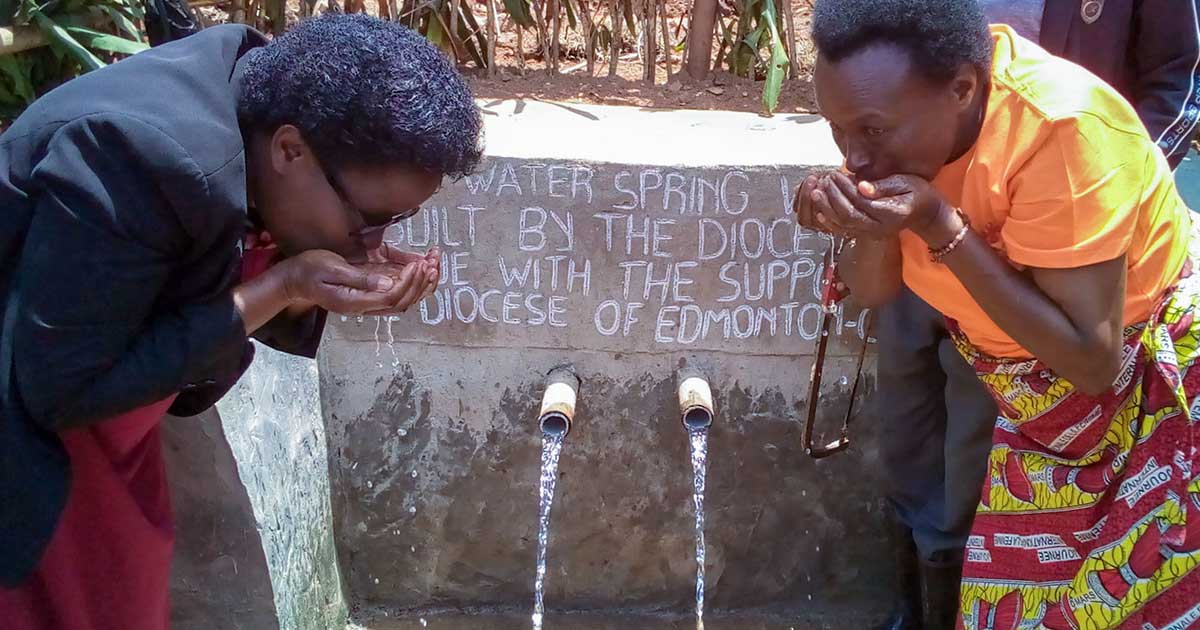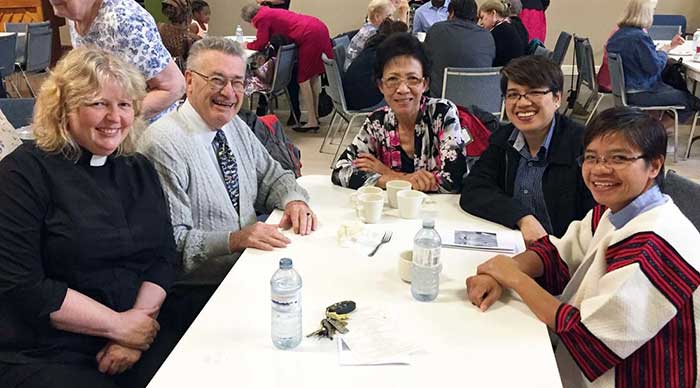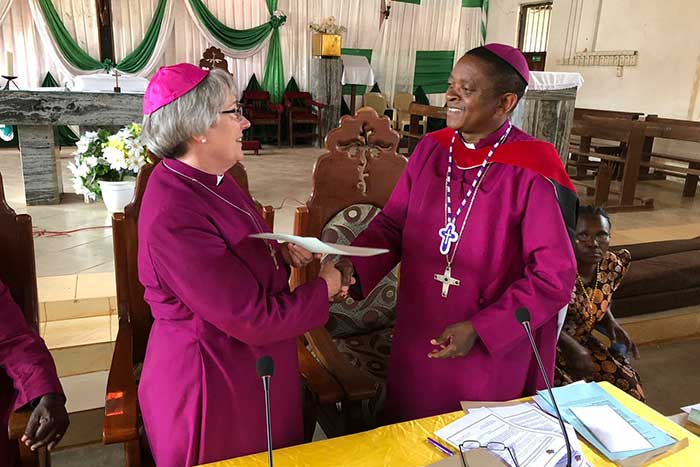
Companion diocese relationships link Canadian dioceses and other dioceses in the Anglican Communion to:
- Encourage and pray for one another
- Learn and share each other’s joys and concerns
- Participate in face-to-face, spiritual, and material exchanges.
Covenanted diocesan companionships are good examples of how prayer, people, visits, and material resources enable and sustain relationships over time for local mission with Anglicans in other parts of the world or other regions in Canada.
Global Relations assists dioceses seeking to begin or strengthen companion relationships by suggesting potential Anglican Communion contacts, offering worship and covenant resources, and providing Joint Ministry Agreement information. Global Relations can also assist with information and opportunities for learning about intercultural faith experiences, leading parish mission and pilgrimage groups, and how best to send funds abroad.
“Mutual prayer support and the ability to connect and to learn about and from each other have been among the greatest blessings of this partnership”.
Diocese of Edmonton and Diocese of Buyé, Anglican Church of Burundi
Companion Relationship Toolbox
“A new relationship is born, a union of equals.”—Huron & Amazonia
New Companion Diocese Relationships are the result of a prayerful process of reflection and discernment by bishops and dioceses. There are various aspects to consider within the leading of the Spirit toward covenant companionship.

Companion Relationships often begin with conversations between diocesan bishops meeting one another in international gatherings, such as the Lambeth Conference.Seeds of interest sewn are taken back to dioceses for deeper discussion with Council members and others, and for further correspondence with the other interested bishop. It is important in getting started to identify:
- Shared mission and ministry priorities to walk together, to uphold each other in prayer, and to work for the Kingdom of God in each diocese.
- Strength of local conviction for learning and friendship across difference – “You are mistaken. In fact, our people are not poor. They are rich because they have the Gospel of Jesus Christ!
- Sustainable Activities – We include each other in our intercessory prayers and follow each other on social media. Many delegations have visited back and forth, fostering new friendships. While the relationship is not about money, we have been able to assist with several projects.
Commitment and covenant

Companion Relationships become formalized through a public worship service of celebration and promise, upheld by diocesan resolution and the in-person Episcopal co-signing of a covenant document.
It is important to:
- Prepare and support a committee of local diocesan leadership in establishing and animating a companion relationship of compassion, kindness, humility, meekness, forbearance, love and harmony to further God’s mission in each diocese.
- Determine by mutual consent the anticipated duration of formal covenant relationship. Our Covenant is a five year covenant to…
- Identify and commit the resources required for realizing the relationship’s goals. Financially, our diocese is not in a position to offer assistance to another diocese. However, we have much to learn about, and to offer to the Anglican Communion and being part of the wider world.
- Evaluate the relationship annually to review and affirm mutual goals and achievements. Most of the 2 million people in our Companion Dioceses have little access to health care. Everyday life is a struggle. Our Companion Diocese Team has been trying to bring a mobile medical clinic to Ho. In the last few weeks, the project has advanced quickly. There is still much to do and funds to raise.
Companion Diocese Relationships may, by mutual agreement, continue beyond the time frame set originally. There are various aspects to consider within the leading of the Spirit toward renewed covenant relationships.
It is important to:
- Celebrate with stories and thanksgiving the Companion Relationship that has reached its original tenure, and lift up the shared, expressed desire to lengthen relationship by mutual invitation and commitment. We are together seeking an extension of the original covenant signed in 2014. We expect we will emerge from every step of our ongoing companionship journey strengthened by the other.
- Identify what has worked well and what can be added or changed to enhance relationships and shared mission. The diocese is in the midst of renewing our covenant and hopes to add considerations of climate change and reconciliation.
- Revise the Covenant of Relationship document to include the new time frame and continuing and new goals.
- Formalize the extended Companion Relationship through a public worship service of celebration and promise, upheld by diocesan resolution and the in-person Episcopal co-signing of the covenant document.
Companion Diocese Relationships conclude for various reasons. There may be a change in one or both diocesan bishops, who agree to a period of discernment and evaluation. Relationships may also end from the waning of local interest or an awakened interest in a new Companion Diocese Relationship. While some Companion Dioceses enjoy a meaningful partnership in mission for more than twenty years, every diocese and every relationship is different.
Upon the ending of Companion Relationships it is important to:
- Clearly communicate between dioceses the decision to conclude the relationship at an appointed time.
- Celebrate the ending of a relationship with stories and thanksgiving for companionship together on the journey.
- Reflect upon the Companion Relationship for what has been learned, experienced, shared, and changed in the life and ministry of the diocese from before the relationship.
- Read the current list of current companion diocese relationships in the Anglican Church of Canada.
- Visit the current Anglican Communion Office list of companion dioceses.
